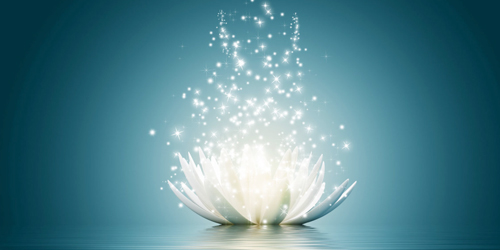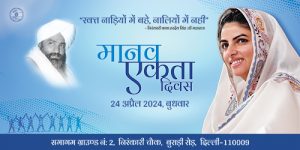The perfect life starts with a dream – a dream of how we want our life to be, which then can become our drive. A motivational quote, which is appropriate for all aspects of life – i.e. our financial situation, physical health or lifestyle, sums it up as follows:
‘A dream written down becomes a goal,
A goal broken down into steps becomes a plan,
A plan backed up by action makes your dreams come true’
But can this apply to our spirituality? I find that spirituality contradicts worldly goals. For, while in our worldly life, we are always trying to gather or gain – be that wealth, knowledge or power – in spirituality we are always trying to lose our attachment by unlearning, simplifying and by surrendering our ego.
I have also found that with worldly aims we section things up; we allocate time or dedicate efforts specific to what we are trying to achieve. We dedicate a time in the day to work to earn money, time to improve our physical health, time to spend with our family and so on. With spirituality, however, it is difficult to dedicate a time because it is a way of life, a perspective and awareness. It is that precious something that we should incorporate into our lives at all times, whether at work, the gym, travelling or socialising. It is not something that we can switch on or off.
Indeed, it is only when we consider our spirituality as a measure of our holistic health that the quote becomes relevant. After all, spirituality is not just something that we acquire as a commodity, which consequently remains with us. It is very much like our physical health, which we do not automatically get; we have to work for it through healthy lifestyle choices. Maintaining our ideal weight for example requires a strict, on-going regimen, involving apt diet, drink and exercise.
The Satguru reminds us all that the Realisation of God, through the Gyan, is never enough. It has to be practised and lived. The attainment of the Gyan is just the beginning of our journey. Baba Hardev Singh Ji describes it as follows:
In having attained the Gnosis – he, who
Fails to practically live by it, O Nirankar
He secures nothing from it nor does he
Experience any ecstasy-bliss – Nirankar
By simply taking the Gnosis there is no
Beneficial, redemptive effect, Nirankar
Without putting your chore into effect
There can never be any yield, Nirankar
– Hardev Bani, 51
Spirituality, like anything else, takes practice, dedication, commitment, sacrifice and hard work. In making efforts towards our spiritual health, it is always worth it, as the rewards are life changing.
So, what is our dream?
If we were to ask 100 people on the street as to what their dream is, you will likely get 100 different answers – i.e. to be a billionaire, to run a big company, to be a world leader, to have a 6-pack and so on. But if we ask a billionaire, a CEO, a prime minster or Mr Universe, the answer would be that they are not living their dream sincerely, for they now harbour another dream. That dream will be just as temporal as the last. Thus, dreams tend to be never-ending.
The truth is, we just want to be happy, have peace of mind, and experience love and life. Everything else is really a vehicle to achieve this. Indeed, we do have moments in life when we not only experience this happiness, but become contented, feeling a sense of peace and love. But how often do we experience this, and how often does it last? Baba Hardev Singh Ji reminds us as follows:
To measure spirituality, count how many times a day our peace of mind is disturbed.
Having established our goal, we come to our plan. How are we going to achieve this happiness? There are numerous examples of how wealth, power and knowledge fail to bring us happiness or peace of mind.
Alexander the Great is said to have proclaimed that all the wealth he fought for, is nothing but dust. He came into the world empty-handed and left the same way. All he had accumulated and conquered, he had to leave behind.
We also hear of great saints, who had very little to their name in the way of education, knowledge, power or social standing – Bhagat Kabir, Sage Ravidas, Saint Namdev and so many others. In spite of all that, however, they led peaceful and happy lives, proving that success, wealth, power and knowledge do not satisfy our true desires as human beings.
This dream of happiness and peace of mind cannot be promised by the richest, most knowledgeable or the most powerful of people. It can only be promised by those, who are experiencing eternal bliss and unflinching peace of mind. It can certainly only be promised by one who knows and can fulfil our true purpose of life. Such a custodian of this one eternal Truth has perennially been known as Satguru.
In unveiling the God Knowledge, Satguru changes our perspective in all aspects of life, which in turn directs our thoughts, words and actions towards a stable, contented and happy life. It is akin to seeking the advice of a doctor, who examines our malady and prescribes the appropriate medicine. If we choose to accept the treatment and follow the doctor’s guidance, we can be cured. It must be stressed that the remedy only works when we follow the advice, exactly as prescribed.
Similarly, if we suffer from greed, ego, hatred and a whole host of vices, all of which disturb our peace of mind, then we must seek the advice and guidance of Satguru, who can teach us how to break free from these harmful qualities. For, Satguru enlightens us with the Gyan, which is the panacea for all ills. But there is always a proviso that we remain in God’s awareness, the absence of which can return us to our vicious life. After the Gyan, what Satguru prescribes are the five principles and the trio of Seva, Simran and Satsang.
Seva, selfless service, is designed for both ourselves and others. Not only do others benefit, we gain a great deal too. It is a worthy and noble deed, a pillar of spiritual practise in all faiths. When we are in this awareness, there is no room for any ego. We become the vessel that serves, without being the active doers. After all, none of the body, mind and wealth is me; everything belongs to God. This is the first principle that we promise to abide by, when Gyan is being revealed to us. Anything other is just food for the ego – transactions, fuelled by our expectations of recognition or return.
Simran occurs during our personal communion with Nirankar, through conscious awareness and remembrance. Simran allows us to remain aloft, like the lotus flower that has its roots in the mire but stands majestically above it. It is there for us to be constantly aware of the Divine in everything and everyone. Simran is a true gift from Satguru. Wherever we may be, whatever situation we find ourselves in, whatever time it may be, Satguru has gifted us the ability to remain in the awareness of the Formless. When we truly focus, we truly consider what we are consciously reciting – You and you alone are the Almighty Nirankar; I am under your protection, so please shield and pardon me. We have to connect with Nirankar because our ego plays havoc with us. Although we are not separate from Nirankar, it is a fact that Nirankar does not exist where ego prevails. Through Simran, the flame of awareness Satguru lit within us shines even more brightly – should the flame be receding for any reason, Simran will help to reignite it.
The Sadhsangat, the fellowship of saints and a treasure-trove of wisdom, constantly reminds us that it is one of the forms of Satguru, who speaks through it, blessing and sanctifying all. One never knows when something heard in Sadhsangat comes to mind and helps us navigate some challenge or other. What is more, Sadhsangat always provides opportunities for Seva and Simran – if we do not make room for these practises elsewhere in our daily lives, they are waiting for us in Sadhsangat!
Sadhsangat is like a purifying bath for the soul. In many places around the world, we remove our shoes before entering the Sadhsangat. Not only is this a sign of respect, but it is also a reminder that all tensions, stresses and strains can be left outside of the Sangat Hall, so that we may refresh ourselves with saintly virtues shared through poetic verse, inspiring talks and uplifting hymns. We are reinvigorated in the Sadhsangat, so much so that having shed our stresses, we leave our troubles behind as we return to our family and worldly life.
The Mission’s ideals are to serve mankind, to work for the benefit of mankind, and to live for mankind. But if we are not living our dream, how can we fulfil the dreams of others? If we have no peace of mind, how can we give peace of mind to others? If we are not experiencing love, how can we show love to others? Indeed, if we are not happy ourselves, how can we give happiness to others?
Raj Mata Kulwant Kaur Ji, our Holy Mother, used to use an analogy. A bag full of sugar, when pierced, always produces sugar. If our saintly vessels are filled with sweetness, it is sweetness that comes out. If we are full of ego, hatred, bitterness, then that is what we will show others. But if we are filled with Nirankar, then we will only show love, tolerance, acceptance, humility and oneness. HH Satguru Mata Sudiksha Ji has said in numerous discourses to focus on ourselves, reflect on ourselves and work on ourselves.
Satguru Mata Sawinder Ji used to remind us of being the lighthouse, while Baba Hardev Singh Ji would urge us to know one, believe in one, and be one.
When the divine light of this Formless Nirankar is lit within us, our thoughts, words and actions align to those of Satguru. We shine brightly for all others to experience warmth, guidance and illumination. The surrender that this light of Gyan brings to us, the state of mind we become, the perspective and vision we see with, then allows us to be the vessel for Nirankar’s will.
It is not our decision, or under our control what happens in the life of others, that is up to Nirankar, we just have to be the vessel for Nirankar by remaining in awareness of this Formless.
That is what Satguru is asking us to do.
– Dr Sumeet Bassan, Sutton Coldfield, UK








